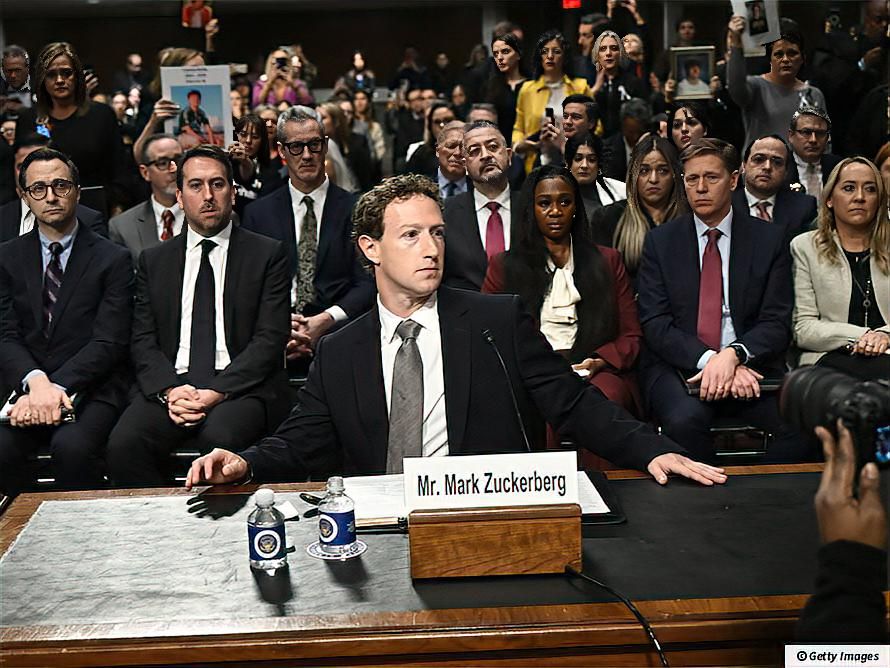But does social media do more good than harm? Tech CEOs are being grilled in the USA this week as part of a Senate hearing about the protection of children from online sexual abuse.
Accused: ‘Your product is killing people’
 Tech wreck: Senator Lindsay Graham of South Carolina accused Mark Zuckerberg of having blood on his hands.
Tech wreck: Senator Lindsay Graham of South Carolina accused Mark Zuckerberg of having blood on his hands. Glossary
Oregon - A state on the north-west coast of the USA. It is one of the most geographically diverse states, with volcanoes, huge lakes, vast forests and deserts.
Exploitation - Treating someone unfairly in order to benefit from their hard work.
Harassment - Unwanted attention that makes someone feel scared or upset.
Senate - The upper chamber of the Congress that - along with the US House of Representatives (lower chamber) - comprises the legislative branch of the US government. Each of the 50 US states is equally represented by two senators, regardless of its population size.
CEO - The Chief Executive Officer is the highest ranking person in a company. They are responsible for making decisions about the company's future.
Predatory - Something that preys on others.
Safeguards - Measures taken for protection.
Restriction - A limit to something.
Algorithm - Any set of rules followed by a computer. In the context of social media, “the algorithm” refers to the intelligent AI that learns the interests of the user and presents them with posts that it thinks will interest them.
